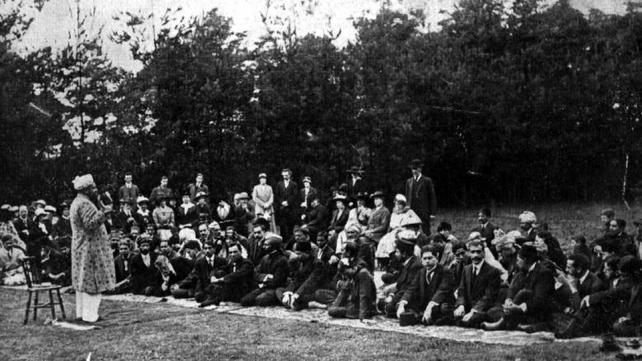
Sexual abuse, sexual harassment and sexual assault may sound like graphic Western terms for a Western problem, but they are not. These are crimes as old as humanity itself.
These are problems and sicknesses which have quietly plagued Muslim societies as well. Imams definitely have a role to play in helping stop abusers and harassers, and aiding victims of these crimes.
Below are eight tips for how Imams can deal with the issues of sexual abuse, assault and harassment in Third World countries:
1. Know the definition of the terms
Sexual harassment includes touching someone sexually who a person is not married to. Sexual assault includes rape or attacking someone sexually, even if sexual intercourse does not take place. Sexual abuse happens over a period of time. Often this includes incest, or sexual relations between family members like parents and children, or brothers and sisters. Sex abuse is normally directed towards young boys and women.
2. Know the correct Islamic perspective on the issue
If Islamic rules of modesty and relations between men, women and families were respected, there would be no sexual abuse or harassment. Women and men would both dress and behave modestly; they would not look at, let alone touch, members of the opposite sex whom it is Haram (forbidden) to touch; parents and children would know the Islamic rules of privacy even between family members. Proper Islamic education is clearly needed and that is where the Imam and the Masjid clearly play a role.
3. Start by approaching the issue indirectly
It is highly unlikely that you will be able to talk about such an issue very openly or graphically, even if you want to, in Khutbas (sermons) dars, etc. This is why you must take an indirect approach.
You can, for instance, discuss the Islamic perspective on how men and women should interact: what is Islamically appropriate behavior and what is not.
The topic of sexual abuse in the family can be dealt with by discussing Islamic guidelines of interaction within the family and the concept of "Mahram" in Islam. Also, discussing the issue of privacy, (i.e. the importance of knocking before entering a room, even within the home) can be a way of addressing this topic without becoming too graphic or shocking.
A note of caution: if you do decide to use a case study from the community when talking about sexual harassment and abuse, make sure not to disclose details which will make it obvious to listeners who is being discussed. This is a violation of privacy.
4. Be open to the concerns of women
Most victims of sexual crimes are women and children. In order for you to be able to help them, they obviously need a way to contact you. One of these ways it to make sure your mosque is open to both men and women. Remember that it is the right of Muslim women to go to the mosque, according to Allah and His Prophet. You can also, if possible, address their concerns by telephone or other means which are practical and useful. Remember that the Imam is the leader of the community, not of men only.
5. Do not share their secrets
If someone discusses a personal problem about sexual crimes with you, you must not tell anyone. This is a trust (Amana) from Allah, and you must keep their secrets guarded.
6. Talk about proper Islamic etiquette between the sexes in a dars
If you teach classes and dars (Quran lecture), make sure this topic is openly discussed, but once again with wisdom. You can bring it up in the same manner as in the Khutbas. Be open to the questions and address the misunderstandings about male-female relationships in and outside the family which continue to plague Muslims.
7. Work in cooperation with police and government officials to end these crimes
As an Imam and authority figure, you can approach the right officials to at least educate them about the problem of sexual crimes, and give the right perspective and Islamic solutions to it. This way, a societal problem can be dealt with Islamically, instead of through legal rules often imported and imposed on Third World countries by foreign bodies or organizations (i.e. the United Nations) which may seek to address the problem, but have another agenda in mind.
8. Make Dua
As the Imam, the lives, honor and well-being of children, women and men must be your concern. If Muslims cannot get justice from their own societies, why do we wonder when they look to non-Muslims and non-Muslim societies for this?








Add new comment